TotalEnergies, ONGC Partner for Methane Emission Detection
By Rediff Money Desk, BETUL Feb 07, 2024 16:51
TotalEnergies and ONGC have partnered to use TotalEnergies' AUSEA technology for detecting and measuring methane emissions from ONGC's operations, contributing to the decarbonization efforts of both companies.
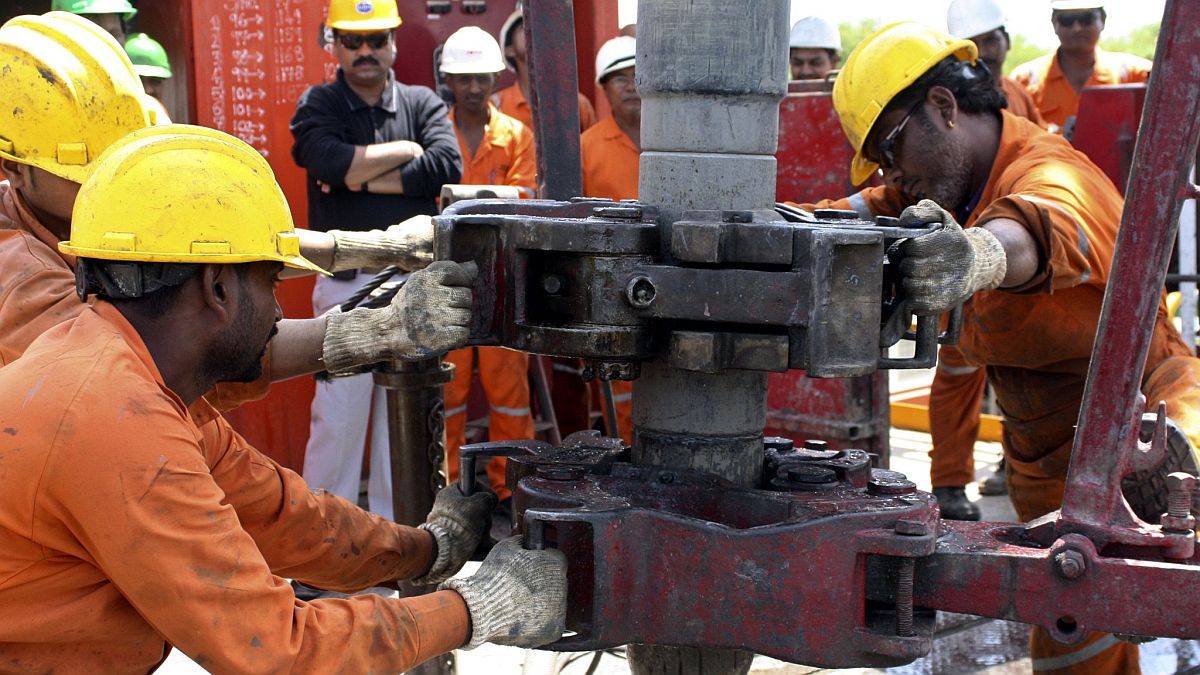
Betul (Goa), Feb 7 (PTI) TotalEnergies and state-owned Oil and Natural Gas Corporation (ONGC) have signed a cooperation agreement to carry out detection and measurement of methane from the Indian firm's operations using the French company's pioneering technology.
ONGC is aiming to curb emission of methane, a greenhouse gas, from its oil and gas operations as part of its decarbonisation drive.
It will now use TotalEnergies' pioneer AUSEA (Airborne Ultralight Spectrometer for Environmental Applications) technology to detect and measure methane emissions, the two firms said in a statement.
The Cooperation Agreement was signed by Sangkaran Ratnam, Country Chair of TotalEnergies in India and Sushma Rawat, Director (Exploration), ONGC on the sidelines of India Energy Week.
"ONGC has been inviting international technology partners to help reduce its methane emissions in India by 2030, while TotalEnergies has decided to share its AUSEA technology in an effort to pivot the whole industry towards zero methane emissions by 2030," it said.
"Both companies are party to the Oil and Gas Decarbonization Charter (OGDC), a global industry initiative launched at COP28," it added.
ONGC joins a growing list of national companies who have signed cooperation agreements with TotalEnergies for the use of AUSEA including Petrobras in Brazil, SOCAR in Azerbaijan, Sonangol in Angola and NNPCL in Nigeria.
Mounted on a drone, the AUSEA gas analyzer, developed by TotalEnergies and its R&D partners, consists of a dual sensor capable of detecting methane and carbon dioxide emissions, while at the same time identifying their source.
This technology marks a step change in methane emissions detection and measurement compared to traditional techniques. By allowing access to hard-to-reach emission points, on all types of industrial facilities, AUSEA is reputed as one of the most accurate technologies in the industry.
"Our industry's priority in the fight against climate change is to slash methane emissions from operations. Aiming for zero methane emissions by 2030 is our collective ambition as signatories of the OGDC at COP28.
"We are pleased to collaborate and make our AUSEA technology available to ONGC, in India, to detect, measure and eventually reduce methane emissions on their own assets," said Patrick Pouyanné, Chairman and CEO of TotalEnergies.
Commenting on the pact, Arun Kumar Singh, Chairman and Managing Director, ONGC, said "In line with our collective ambitions as signatories of the OGDC at COP28, ONGC is scouting for new technologies to reduce its methane emissions by 50 per cent by 2027 and by 80 per cent in 2030 compared to 2020. The introduction of the AUSEA technology will further strengthen our efforts to achieve zero methane emissions by 2038".
After halving its methane emissions from its operated sites between 2010 and 2020, TotalEnergies set ambitious targets to step up its efforts and reduce methane emissions by a further 50 per cent by 2025 - with the ambition to reach this target a year early, in 2024 - and by 80 per cent in 2030, compared to 2020.
TotalEnergies is also committed to promoting the United Nations' Oil and Gas Methane Partnership (OGMP 2.0) framework with other national and international oil companies. The company has now held the OGMP Gold standard status for the three years in a row, the statement added.
ONGC is aiming to curb emission of methane, a greenhouse gas, from its oil and gas operations as part of its decarbonisation drive.
It will now use TotalEnergies' pioneer AUSEA (Airborne Ultralight Spectrometer for Environmental Applications) technology to detect and measure methane emissions, the two firms said in a statement.
The Cooperation Agreement was signed by Sangkaran Ratnam, Country Chair of TotalEnergies in India and Sushma Rawat, Director (Exploration), ONGC on the sidelines of India Energy Week.
"ONGC has been inviting international technology partners to help reduce its methane emissions in India by 2030, while TotalEnergies has decided to share its AUSEA technology in an effort to pivot the whole industry towards zero methane emissions by 2030," it said.
"Both companies are party to the Oil and Gas Decarbonization Charter (OGDC), a global industry initiative launched at COP28," it added.
ONGC joins a growing list of national companies who have signed cooperation agreements with TotalEnergies for the use of AUSEA including Petrobras in Brazil, SOCAR in Azerbaijan, Sonangol in Angola and NNPCL in Nigeria.
Mounted on a drone, the AUSEA gas analyzer, developed by TotalEnergies and its R&D partners, consists of a dual sensor capable of detecting methane and carbon dioxide emissions, while at the same time identifying their source.
This technology marks a step change in methane emissions detection and measurement compared to traditional techniques. By allowing access to hard-to-reach emission points, on all types of industrial facilities, AUSEA is reputed as one of the most accurate technologies in the industry.
"Our industry's priority in the fight against climate change is to slash methane emissions from operations. Aiming for zero methane emissions by 2030 is our collective ambition as signatories of the OGDC at COP28.
"We are pleased to collaborate and make our AUSEA technology available to ONGC, in India, to detect, measure and eventually reduce methane emissions on their own assets," said Patrick Pouyanné, Chairman and CEO of TotalEnergies.
Commenting on the pact, Arun Kumar Singh, Chairman and Managing Director, ONGC, said "In line with our collective ambitions as signatories of the OGDC at COP28, ONGC is scouting for new technologies to reduce its methane emissions by 50 per cent by 2027 and by 80 per cent in 2030 compared to 2020. The introduction of the AUSEA technology will further strengthen our efforts to achieve zero methane emissions by 2038".
After halving its methane emissions from its operated sites between 2010 and 2020, TotalEnergies set ambitious targets to step up its efforts and reduce methane emissions by a further 50 per cent by 2025 - with the ambition to reach this target a year early, in 2024 - and by 80 per cent in 2030, compared to 2020.
TotalEnergies is also committed to promoting the United Nations' Oil and Gas Methane Partnership (OGMP 2.0) framework with other national and international oil companies. The company has now held the OGMP Gold standard status for the three years in a row, the statement added.
Read More On:
DISCLAIMER - This article is from a syndicated feed. The original source is responsible for accuracy, views & content ownership. Views expressed may not reflect those of rediff.com India Limited.
You May Like To Read
TODAY'S MOST TRADED COMPANIES
- Company Name
- Price
- Volume
- GTL Infrastructure
- 2.93 ( -4.87)
- 226206286
- IFL Enterprises
- 1.30 (+ 4.84)
- 81461564
- Vodafone Idea L
- 16.79 (+ 0.66)
- 67447398
- NCL Research
- 0.95 ( -4.04)
- 31996628
- Franklin Industries
- 3.73 (+ 3.32)
- 21511209
MORE NEWS

Navi Mumbai Airport ILS Signal Testing Begins
The Airports Authority of India (AAI) has begun ILS signal testing at the...

Air India VRS for Non-Flying Staff Ahead of...
Air India has announced a voluntary retirement scheme (VRS) and voluntary separation...
Fisher Groups Oppose WTO Fisheries Subsidy Talks
Small-scale fisher groups from India, Indonesia, and Bangladesh demand WTO keep...



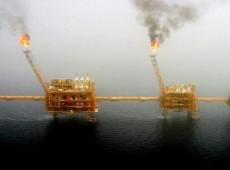
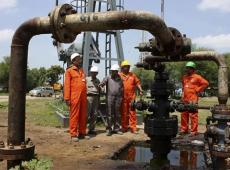
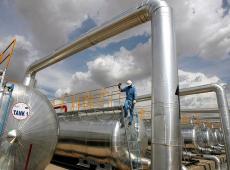
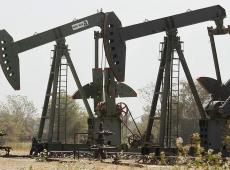
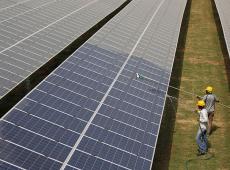
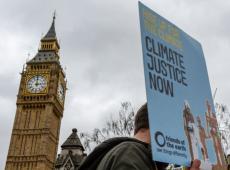
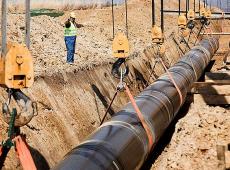
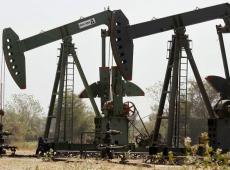

 © 2024 Rediff.com India Limited. All rights reserved.
© 2024 Rediff.com India Limited. All rights reserved.